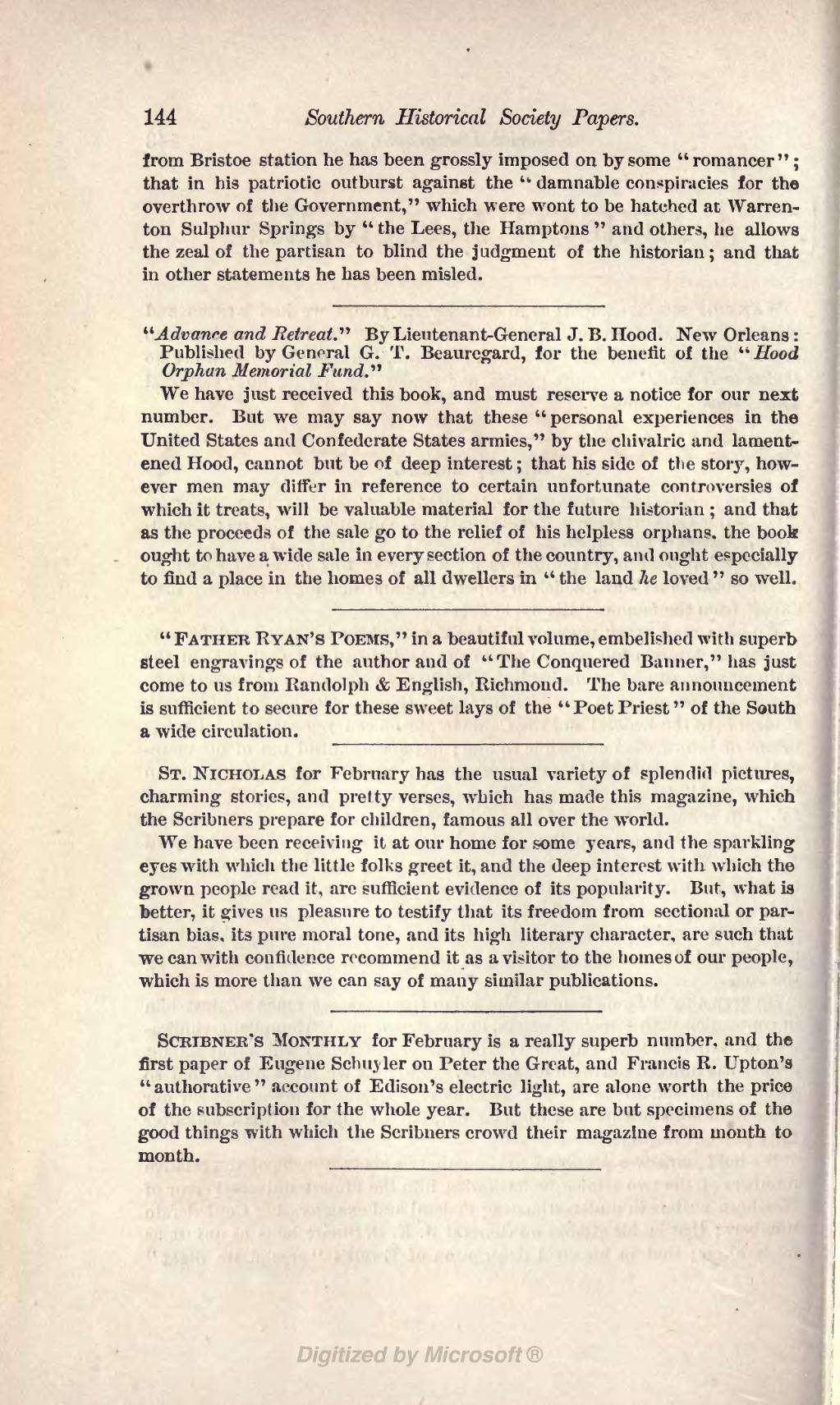from Bristoe station he has been grossly imposed on by some "romancer"; that in his patriotic outburst against the "damnable conspiracies for the overthrow of the Government," which were wont to be hatched at Warrenton Sulphur Springs by "the Lees, the Hamptons" and others, he allows the zeal of the partisan to blind the judgment of the historian; and that in other statements he has been misled.
We have just received this book, and must reserve a notice for our next number. But we may say now that these "personal experiences in the United States and Confederate States armies," by the chivalric and lamentened Hood, cannot but be of deep interest; that his side of the story, however men may differ in reference to certain unfortunate controversies of which it treats, will be valuable material for the future historian; and that as the proceeds of the sale go to the relief of his helpless orphans, the book ought to have a wide sale in every section of the country, and ought especially to find a place in the homes of all dwellers in "the land he loved" so well.
"Father Ryan's Poems," in a beautiful volume, embelished with superb steel engravings of the author and of "The Conquered Banner," has just come to us from Randolph & English, Richmond. The bare announcement is sufficient to secure for these sweet lays of the "Poet Priest " of the South a wide circulation.
St. Nicholas for February has the usual variety of splendid pictures, charming stories, and pretty verses, which has made this magazine, which the Scribners prepare for children, famous all over the world.
We have been receiving it at our home for some years, and the sparkling eyes with which the little folks greet it, and the deep interest with which the grown people read it, are sufficient evidence of its popularity. But, what is better, it gives us pleasure to testify that its freedom from sectional or partisan bias, its pure moral tone, and its high literary character, are such that we can with confidence recommend it as a visitor to the homes of our people, which is more than we can say of many similar publications.
Scribner's Monthly for February is a really superb number, and the first paper of Eugene Sehuyler on Peter the Great, and Francis R. Upton's "authorative" account of Edison's electric light, are alone worth the price of the subscription for the whole year. But these are but specimens of the good things with which the Scribners crowd their magazine from month to month.
